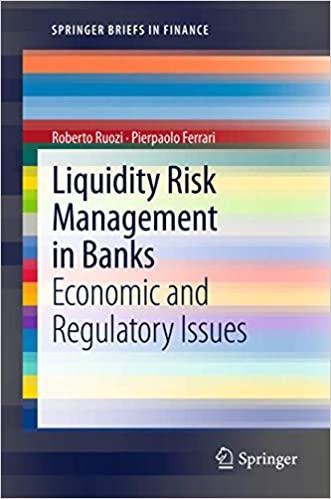Question
5.4 In this question, we answer the age-old query, Are we better off playing the lottery or saving the money? (6 marks) Assume you can
5.4 In this question, we answer the age-old query, Are we better off playing the lottery or saving the money? (6 marks)
Assume you can buy one ticket for $5, draws are made monthly, and a winning ticket correctly matches six different numbers of a total of 49 possible numbers.
The probabilities: To win, you must choose all six numbers correctly. Your first number has a one in 49 chance of being correct. Your second number has a one in 48 chance, and so on. There are exactly 49x48x47x46x45x44 = 10,068,347,520 ways to pick six numbers from 49 options.
The order in which you pick them does not matter, though, so you actually have a few more ways to win. You can pick six different numbers in exactly 6x5x4x3x2x1 = 720 orders of choice. Any of those orders would still win the lottery.
Putting this all together, your ticket has 720/10,068,347,520 = 1/13,983,816 chance of winning. This equates to a .000000071 percentage chance.
If you played one ticket every month from age 18 to age 65, you would have 47x12 = 564 plays. Your odds of never winning would be calculated using a binomial distribution to be .9999599568, meaning your chances of winning would be 1.9999599568 = .0000400432.
So, if the lottery winnings averaged $10 million over this time period, your expected return would be less than .0000400432 x $10 million = $400.43.
(Its actually less than $400.43 because your 564 plays are spread out over the next 47 years, so the present value of these future plays would be significantly less than if you were able to play all 564 immediately. The $400.43 assumes you play all 564 plays today, which makes it the highest possible expected value.)
- What would your $400.43 be worth if you invested it at an annual real interest rate of 1% (with monthly compounding) for 47 years? (1 mark)
- If, instead, you deposited your five dollars per month in a bank at 1% real interest rate with monthly compounding, how much would you have at the end of the first year? (1 mark)
- If you did this every year for 47 years at the 1% real interest rate with monthly compounding, how much would you have at age 65? (1 mark)
- How much better off would you be keeping your money, rather than playing the lottery? (1 mark)
- If, instead of 1%, you earned 5% real interest on your deposits, how much would you have at age 65? (2 marks)
Step by Step Solution
There are 3 Steps involved in it
Step: 1

Get Instant Access to Expert-Tailored Solutions
See step-by-step solutions with expert insights and AI powered tools for academic success
Step: 2

Step: 3

Ace Your Homework with AI
Get the answers you need in no time with our AI-driven, step-by-step assistance
Get Started


